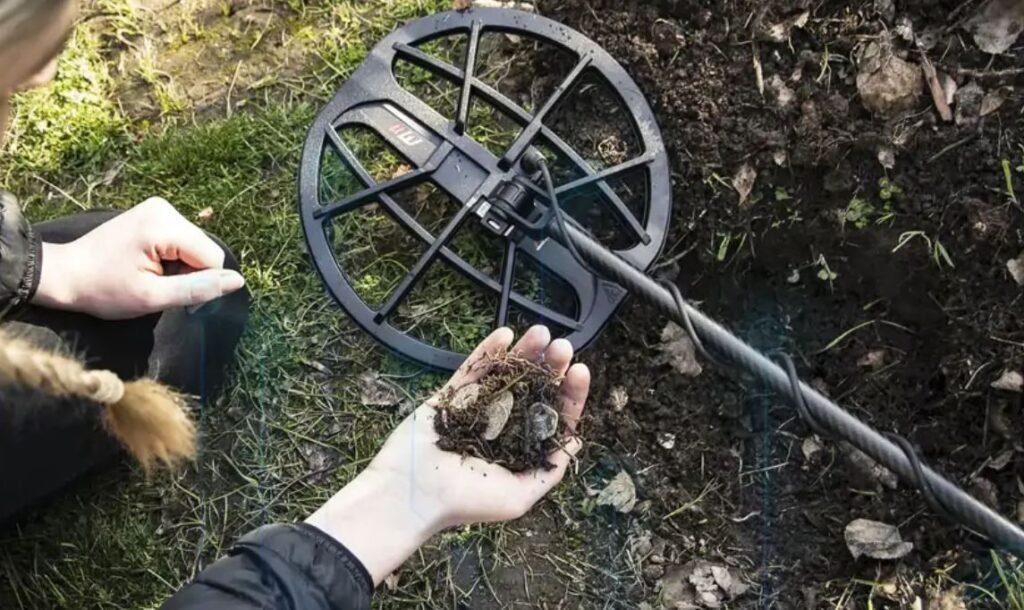Metal detecting at night adds a whole new level of excitement to the hobby. The quiet surroundings, cooler temperatures, and empty fields or beaches make nighttime detecting incredibly rewarding. Many detectorists prefer the dark hours because it helps them focus, avoids crowds, and can sometimes reveal targets missed during daytime hunts. But night detecting also requires careful preparation, safety awareness, and the right gear.
Here is your complete guide to Night Time Metal Detecting Tips to help you stay safe, efficient, and successful during your after-dark adventures.
1. Bring Proper Lighting
Lighting is the most important factor when metal detecting at night.
✔ Headlamp
A bright, hands-free headlamp lets you dig, scan, and see your surroundings without holding a flashlight.
✔ Flashlight
Bring a powerful LED torch as backup in case your headlamp battery dies.
✔ Coil Light
Some metal detectors support coil-mounted lights to illuminate the ground directly in front of your coil.
✔ Extra Batteries
Never go night detecting without fully charged extras.
2. Use Reflective Gear for Safety
Visibility keeps you safe in dark environments.
-
Wear reflective vests, armbands, or gloves
-
Add reflective tape to your detector shaft or digging tools
-
Use clothing with bright or neon accents
This helps you stay noticeable to vehicles, cyclists, or other night walkers.
3. Choose the Right Location
Not all areas are safe or legal for night-time detecting.
✔ Check Local Laws
Some parks and beaches have restricted hours. Always follow local regulations.
✔ Select Safe Spots
Stick to:
-
Public beaches
-
Open fields
-
Schoolyards (where allowed)
-
Private land with permission
Avoid wooded areas, cliffs, or steep terrains at night.
4. Go Slow and Stay Aware
Darkness reduces visibility, so take your time.
-
Walk slowly
-
Overlap your sweeps
-
Listen carefully for faint signals
-
Be aware of wildlife or uneven ground
Night detecting requires extra caution to avoid falls or injuries.
5. Use a GPS or Tracking App
It’s very easy to lose your sense of direction at night.
Use tools like:
-
GPS maps
-
Detecting apps with tracking features
-
Headlamp strobe mode to mark your starting point
Tracking helps you stay oriented and prevents getting lost.
6. Bring the Right Digging Tools
Your tools should be easy to see and handle in low light.
Recommended:
-
Stainless steel hand digger
-
Pinpointer with built-in light
-
Compact shovel
-
Kneeling pad
Choose tools with bright handles or wrap them with reflective tape.
7. Control Your Noise Level
Nighttime is quieter, so avoid disturbing nearby residents.
-
Lower your detector volume
-
Use headphones to avoid noise travel
-
Keep digging sounds minimal
Respecting the peace keeps night detecting enjoyable for everyone.
8. Watch the Weather
Temperature drops fast at night, so be prepared.
Pack:
-
Light jacket or hoodie
-
Gloves
-
Water-resistant shoes
-
Extra socks
Cold ground and moisture can affect your detector’s performance, so adjust sensitivity if needed.
9. Stay Hydrated and Energized
Even at night, hunting can be tiring.
-
Bring water bottles
-
Carry small snacks
-
Take breaks when needed
A clear mind means better concentration and more finds.
10. Hunt with a Buddy When Possible
Solo night detecting is enjoyable but riskier.
With a partner:
-
You stay safer
-
You can cover more ground
-
You have support in case of emergencies
If you hunt alone, always tell someone your location and expected return time.
11. Check Your Surroundings Frequently
Stop every few minutes to look around.
-
Scan for people or animals
-
Re-check your route
-
Ensure your gear is still secure
Awareness is your strongest safety tool at night.
12. Use Low Light Filters for Better Visibility
Red-light modes on headlamps help maintain night vision.
Benefits:
-
Less glare
-
Better stealth
-
Clearer view of the ground
Red lights are great for reading maps or sorting finds without ruining your night vision.
13. Know When to Call It a Night
If you’re tired or the area feels unsafe, pack up and leave.
Night detecting should always be enjoyable, never risky.
Final Thoughts
Nighttime metal detecting tips is a thrilling and rewarding experience. With the right lighting, preparation, and safety precautions, you can enjoy peaceful hunts and uncover treasures others often miss. From choosing safe locations to using reflective gear and tracking apps, these tips ensure that your after-dark detecting adventures remain productive and secure.
